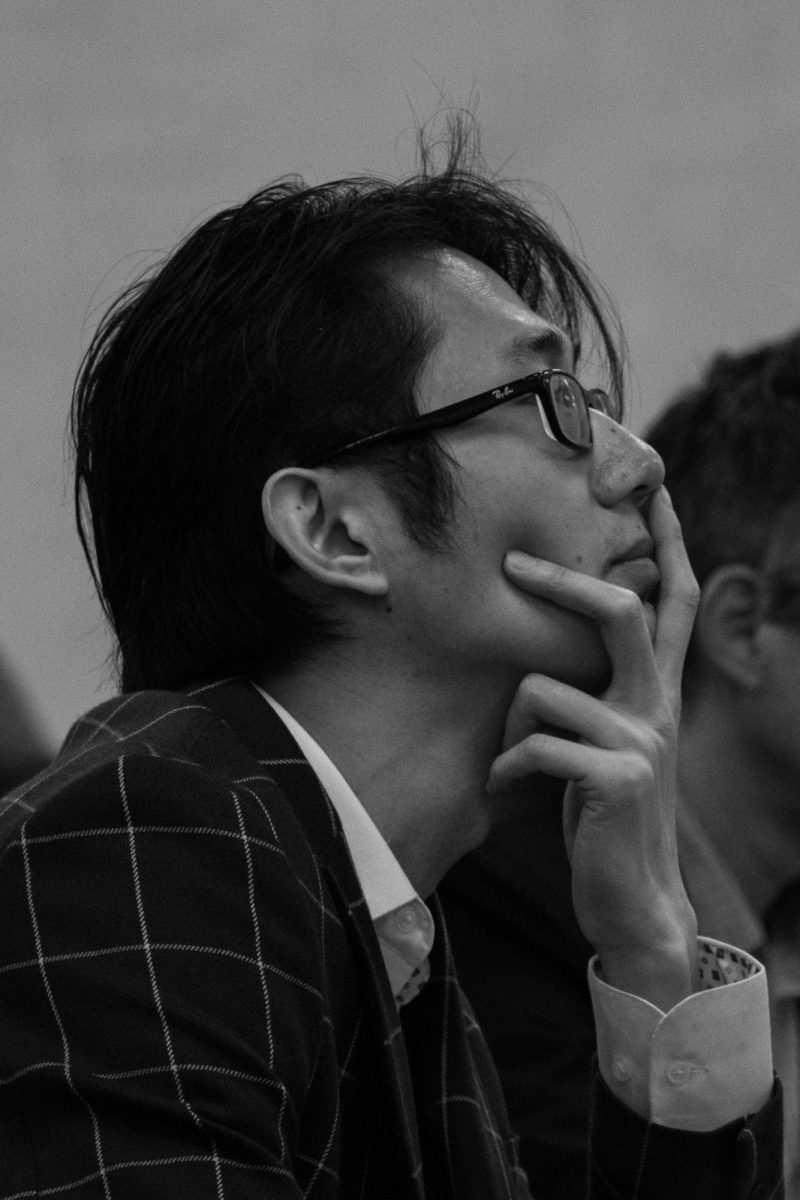NKU’s College of Informatics is honoring the late professor, Gaut Ragsdale through its 26th photography exhibition, “NKU: In Honor of Gaut Ragsdale.” Open through February 2025, the advising center’s show features photos commemorating Ragsdale’s legacy and lasting impact on the campus.
Ragsdale worked at NKU for decades, holding numerous impressive titles during his tenure. He passed away this past May, and now faculty and staff fondly celebrate him through their photography. One is Professor John Gibson, who remembers Ragsdale as a “friendly mentor” who guided his colleagues.
“Gaut was your definitive professor—a scholar, a researcher, a great educator,” Gibson said. “When I see that window, I think about those qualities.”
Gibson’s photography is simple yet poignant. In one photo, a large, lonely window offers a glimpse onto campus. It is where Gibson and Ragsdale frequently talked, peeked outside and shared coffee and stories. In another, a slightly crumpled note lies in the sunlight, with two coffee pods nearby—Ragsdale’s cursive handwriting bids Gibson a good semester.
In many ways, Ragsdale showed his colleagues how to be a professor and what it meant to conduct yourself with formality. The exhibit also highlights how Ragsdale had memorable sayings, called “Gautisms”. One such example is that a leopard never changes its spots.
“He always had a phrase for every situation,” Gibson said. “But as a person who devoted their whole career to education and mentorship, he knew these things.”
Another tribute comes from Professor Michael Skaggs. He took on the challenge of photographing every office Ragsdale occupied. His photos show wooden doors bearing Ragsdale’s name, like a map of his career across campus. It was a collective effort to find the many places Ragsdale inhabited. Skaggs and colleagues dug up old syllabi to discover where Ragsdale worked throughout the years.
“What I was thinking about was a sense of place, a continuum. Because when some of the people would see it, they would remember talking to Gaut in that office,” Skaggs said.
Before the exhibition, the advising center was all white walls and fluorescent lights—an empty space filled with potential. In 2012, Ragsdale approached Skaggs with the idea of decorating the walls with photographs. The two began curating an exhibition showcasing the staff’s creativity.
Now, the advising center holds two shows a year, with broad themes such as Open, Places, People and the current theme NKU. This allows staff and faculty to share their art, reminding students they are more beyond the classroom walls; they, too, are passionate creators.
“You see people in the hallway, like faculty, staff, walking. You know that they do other things besides teach. You don’t always think about what their other creative outlets are,” Gibson said.
Larissa Heck, Manager of Communication, Events and Administration, chose to center her photography around the dissolution of NKU’s diversity, equity and inclusion (DEI) office in August. The decision affected not only students but also faculty.
“I know that NKU faced an impossible decision but I just regret that it went the way it did,” Heck said. “It was a disappointing decision and I feel a lot of people felt that.”
Heck is responsible for capturing pictures at the College of Informatics (COI) and various events, documenting the ephemeral moments that unfold. Her camera preserves the brief bursts of laughter, the quiet looks of concentration or even the thunderous applause of crowds. Heck felt she was losing herself in the documentation side of photography, forgetting the artistic beauty of these fleeting moments. Looking over her photography, she honed in on some of the faces.
“I realized that the most beautiful portraits I had taken were of people that were diverse,” said Heck. “This would be a great opportunity to turn these in and be able to say my piece.”
Art, according to Heck, is showing what you feel. Her photography exemplifies how faculty and staff take opportunities like this exhibition to remain in solidarity with students and convey their thoughts. In events such as the dissolution of the DEI office or the tragic loss of a beloved professor, art is a powerful mode of expression.


